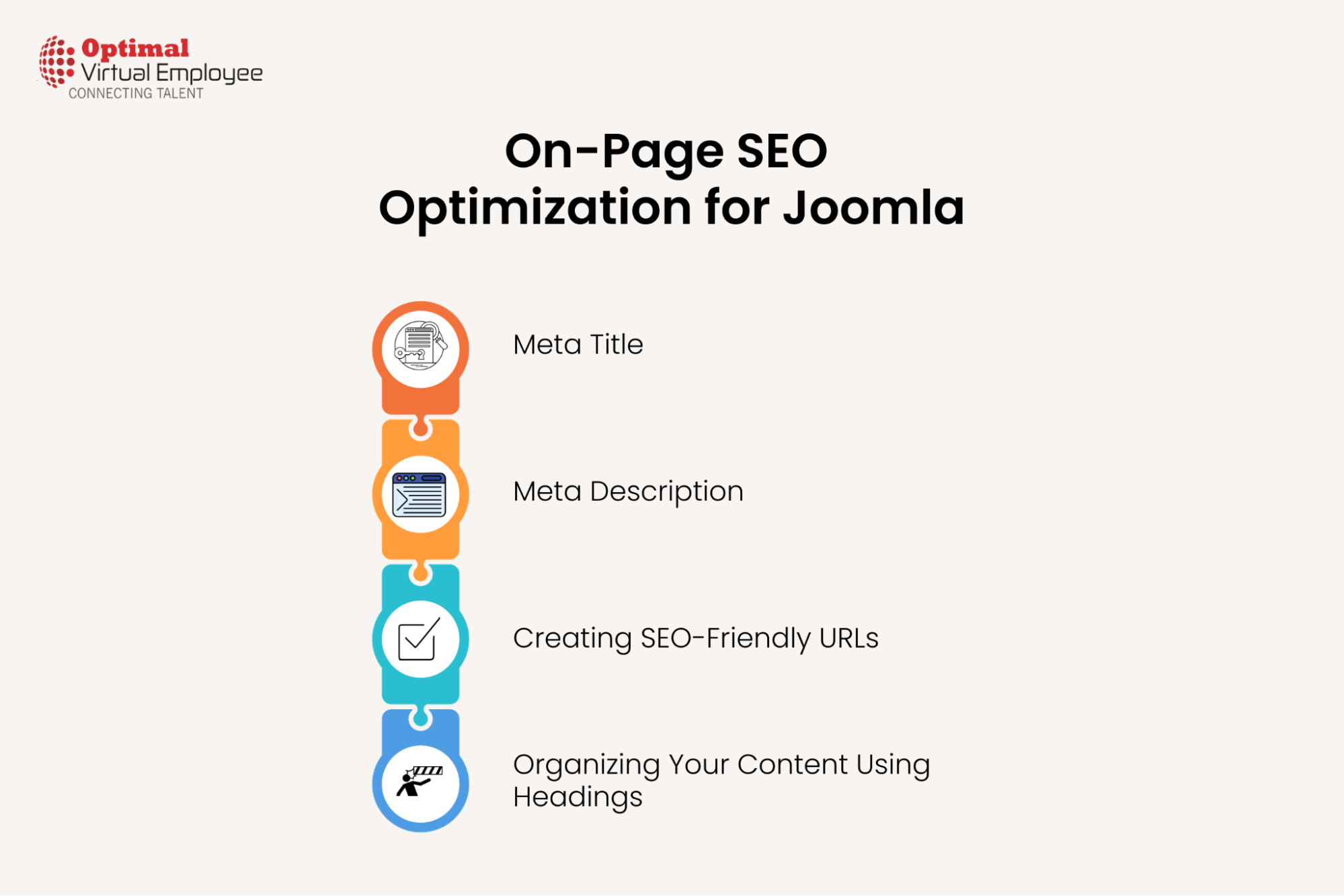Joomla is a robust content management system (CMS), offers users a user-friendly platform for website creation. Nevertheless, constructing a website marks just the initial phase. To ensure potential visitors can find your Joomla site, optimizing it for search engines becomes imperative.
Search engine optimization (SEO) serves as a method to enhance both the quantity and quality of traffic from search engines to your website. It works to elevate your website’s position on search engine results pages (SERPs), ultimately increasing the likelihood of attracting a larger audience.
Within this guide, I will impart some of the most effective Joomla SEO practices to enhance your website’s visibility and draw in more organic traffic. Let’s dive in!
What Is Joomla?
Joomla often stylized as Joomla!, is a self-hosted, open-source content management system (CMS) with its roots dating back to 2005. This platform is freely available and enables you to construct websites and applications for various purposes. Among the array of CMS options, Joomla stands out due to its user-friendly nature and simplicity, making it a preferred choice for many users.
Benefits of SEO-Friendly Joomla Website
Optimizing your Joomla website for search engines offers numerous advantages. SEO is often compared to PPC (Pay-Per-Click) advertising; while PPC can yield quick results, SEO provides long-lasting benefits. Here are some key advantages of optimizing your Joomla website for search engines:
Increased Organic Traffic
Organic traffic refers to visitors who reach your website without direct payment for advertising. From a business perspective, an optimized Joomla website has the potential to attract your target audience and prospective clients naturally. When you rank high for your target keywords, you’re more likely to win over visitors and convert them into customers. This increased traffic is obtained organically, without the need for paid advertising or PPC.
Cost-Effective Marketing
An SEO-optimized Joomla website serves as a cost-effective marketing strategy for your business. It’s one of the most efficient ways to reduce customer acquisition costs (CAC). The efforts put into SEO continue to pay off over an extended period, making it a sustainable and cost-efficient approach to marketing. This should serve as ample motivation to optimize your Joomla website.
Enhance Brand Visibility
Websites that achieve high rankings on the Search Engine Results Pages (SERPs) are seen as more credible. This is because Google’s algorithm favors websites that are optimized for user experience. So, achieving a higher ranking is an indicator that you have invested effort into providing accurate and valuable information that benefits your users.
When your brand’s credibility in the eyes of the public increases, it is likely to result in improved profits and a faster realization of your business objectives. This advantage is not available in paid advertising mediums, where your website disappears from search results once your ad budget is exhausted.
The Importance of SEO for Joomla Websites
SEO (Search Engine Optimization) is the practice of enhancing your website’s performance to achieve higher rankings on search engine results pages (SERPs). For Joomla website owners, effective SEO is a crucial element for attracting organic traffic, improving visibility, and achieving online success.
Keyword Research & Selection
Select keywords that accurately represent the content on your website and incorporate them into your site’s structure.
Keyword research involves identifying the terms and phrases that your target audience typically uses when searching for content related to your website. Having a grasp of these keywords is vital for optimizing the content on your Joomla site.
You can conduct keyword research using both free and paid tools. You can utilize a free tool like Google Keyword Planner or opt for a paid one like SEMrush or Ahrefs to uncover relevant keywords, evaluate their search volume, and assess their level of competition.
On-Page SEO Optimization for Joomla
Meta tags play a significant role in on-page SEO for Joomla websites. These small snippets of HTML code provide crucial information about your web pages to both search engines and users. To maximize their effectiveness, consider the following guidelines:
Meta Title
Craft a compelling and concise meta title for each page. It should accurately reflect the content and include your primary keyword. Keep it under 60 characters to ensure it displays correctly in search results.
Meta Description
The meta description serves as a summary of your page’s content. Aim for a length of around 150-160 characters. Make it engaging and informative to encourage users to click through to your website. While including relevant keywords is important, avoid overloading the description with keywords.
Creating SEO-Friendly URLs
Joomla offers the flexibility to generate user-friendly and SEO-friendly URLs for your website. Follow these tips to ensure your URLs are well-optimized:
Create Informative URLs – Design URLs that offer a straightforward indication of the page’s content. Steer clear of vague or cryptic URLs and incorporate relevant keywords when appropriate.
Utilize Hyphens – Employ hyphens (-) to separate words within your URLs. This enhances readability for both users and search engines. Avoid underscores or special characters, as they can complicate URL interpretation.
Shorten URLs – Lengthy, intricate URLs can lead to confusion and have a detrimental effect on SEO. Maintain concise URLs that directly relate to the subject matter.
Organizing Your Content Using Headings
Structuring your content with headings is essential for both SEO and user experience. Here’s how to effectively employ headings:
H1 Tag – Utilize the H1 tag for your primary page title or headline. It should communicate the page’s subject and often incorporate the primary keyword.
H2 Tags – H2 tags function as subheadings that break down the primary topics on your page. They should offer an overview of the content that follows and may include variations of your primary keyword.
H3 and H4 Tags – These subheadings provide additional structure and hierarchy to your content. Use them to arrange subsections and provide added context for both readers and search engines.
Keep in mind that headings not only assist search engines in comprehending your content but also enhance the readability and accessibility of your pages. Use them judiciously to create a seamless user experience while optimizing for SEO.
Content Quality and Relevance
Producing top-notch, informative, and captivating content stands as a critical factor for achieving SEO success. Ensure that your Joomla website offers valuable information that addresses the needs and interests of your target audience.
Incorporate various multimedia elements such as images, videos, infographics, and more into your content. These additions not only enhance the user experience but can also positively impact your website’s SEO.
Search engines have a preference for websites that consistently update their content. Maintain a blog or news section on your Joomla site to keep your content current and relevant.
Mobile Responsiveness
Given the increasing prevalence of smartphones, Google places importance on mobile-responsive websites. Choose Joomla templates that are mobile-friendly, and test your site’s responsiveness on various devices.
Select Joomla templates that are designed to adapt to different screen sizes, ensuring an optimal viewing experience for mobile users.
Site Speed and Performance
The speed of your website significantly influences its SEO rankings. Optimize your Joomla site for fast loading by reducing image sizes, utilizing browser caching, and minimizing unnecessary scripts.
Consider incorporating Joomla extensions that offer caching and compression features to further enhance your site’s performance.
Technical SEO for Joomla
Schema Markup
Incorporating schema markup is a valuable strategy to boost the visibility of your Joomla website in search engine results pages (SERPs). Schema markup provides search engines with structured data about your content, enabling them to better comprehend the context of your web pages. Here’s how to maximize the benefits of schema markup:
Types of Markup – Select the appropriate schema markup types that best describe your content, whether it’s articles, products, events, or other categories. The choice of schema type should align with your website’s content.
Rich Snippets – Schema markup can result in rich snippets, which are visually enhanced search results. These may include star ratings, product prices, event dates, and other pertinent information that makes your listing more appealing to users.
Implementation – You can implement schema markup manually by adding structured data to your HTML or utilizing online schema markup generators. Alternatively, Joomla offers extensions specifically designed for schema markup.
Testing – After implementation, use Google’s Structured Data Testing Tool to verify that your schema markup is error-free and correctly recognized by search engines.
XML Sitemaps
Generating XML sitemaps for your Joomla site is a fundamental SEO practice that assists search engines in efficiently indexing your web pages. Here’s how to effectively utilize XML sitemaps:
Joomla Extensions – Several Joomla extensions are available to automatically create and manage XML sitemaps. These extensions simplify the process of keeping your sitemap up to date as you add or modify content.
Submission – After creating your XML sitemap, submit it to search engines like Google and Bing using their respective webmaster tools. This step ensures that search engines are informed about your site’s layout and can crawl and index it effectively.
Regular Updates – Continuously update your XML sitemap to reflect changes in your website’s structure and content. Many Joomla extensions can automate this process, but it’s crucial to review it periodically to ensure accuracy.
By implementing schema markup and keeping your XML sitemap current, you can enhance the visibility and accessibility of your Joomla website in search engine results. This, in turn, will drive more organic traffic to your site.
Conclusion
The field of SEO is ever-evolving, demanding your continuous efforts to stay informed. Therefore, it’s crucial to remain vigilant and stay current with Joomla SEO practices. Neglecting this could result in lower search rankings, which, in the end, may lead to a decline in your business. If you rely on a steady stream of leads, it’s essential to adhere to the SEO tips mentioned above to ensure a consistent flow of potential customers.











